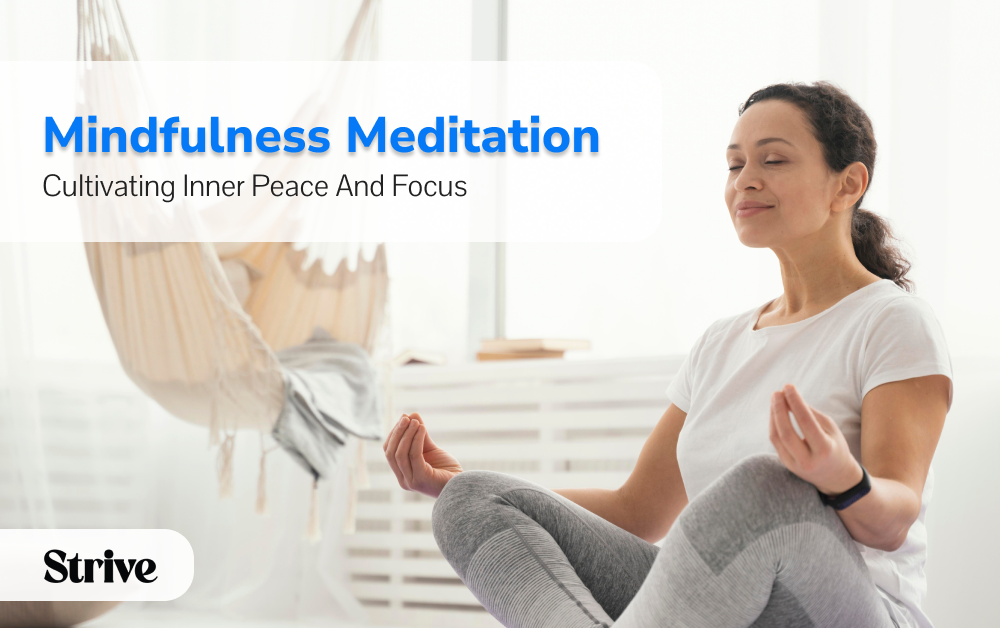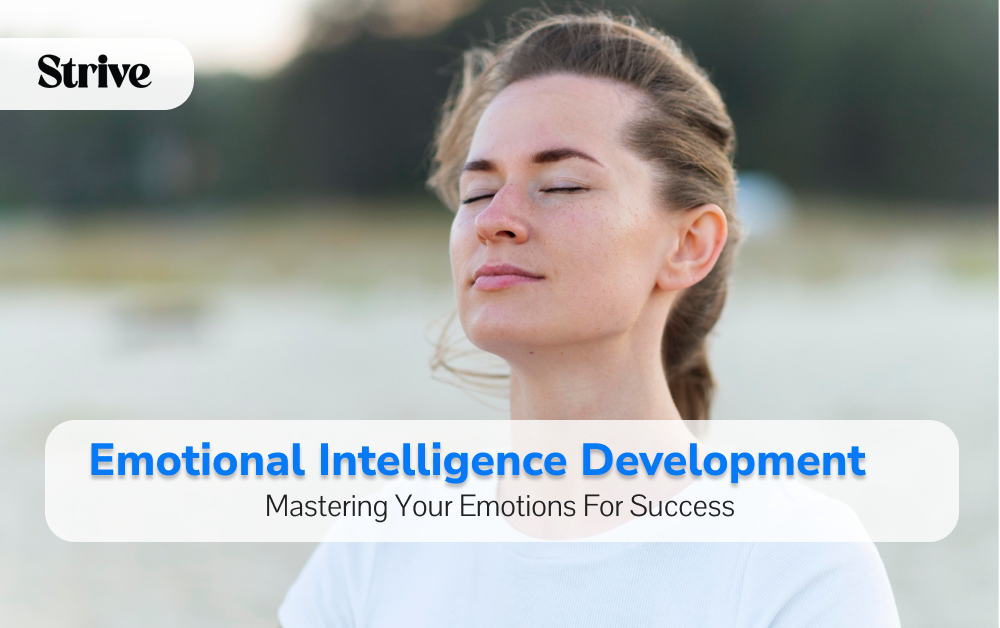Have you ever felt overwhelmed by the chaos of daily life? Do you struggle to stay focused and present in the moment? If so, you’re not alone. The fast-paced and demanding nature of modern life can leave us feeling disconnected from ourselves and our surroundings.
But what if there was a way to find inner peace and clarity amidst the chaos? What if there was a practice that could help you stay grounded and focused, regardless of what’s happening around you?
Enter mindfulness meditation. This transformative practice has been embraced by individuals around the world as a powerful tool for cultivating peace, harmony, and focus. By training your mind to be fully present and aware of the present moment, mindfulness meditation offers a path towards inner peace and enhanced well-being.
Are you ready to embark on a journey of self-discovery and tranquility? Join us as we explore the world of mindfulness meditation, discover meditation techniques, and uncover the countless benefits it can bring to your life.

Key Takeaways:
- Mindfulness meditation is a practice that helps cultivate inner peace and focus.
- It involves training the mind to be fully present and aware of the present moment.
- By incorporating mindfulness meditation techniques into daily life, individuals can reduce stress, improve focus, and enhance emotional well-being.
- Benefits of mindfulness meditation include reduced stress, improved focus, increased self-awareness, and better sleep.
- Practical tips and techniques can help individuals incorporate mindfulness into their daily routines and create a more mindful work environment.
What is Mindfulness Meditation?
Mindfulness meditation is a transformative journey that takes individuals on an inward exploration of their consciousness and an inspiring connection with their inner selves. It is a practice that enables individuals to surpass the external noise of the world and access the profound quiet wisdom that resides within. Mindfulness meditation is not merely about sitting in silence with crossed legs; it encompasses a way of life that cultivates balance, awareness, and contentment. Through this transformative journey, individuals discover peace, enhance their concentration, and develop a deeper understanding of themselves.
By embarking on this transformative journey, individuals gain the opportunity to explore the boundless realm of their consciousness and embark on a profound quest for self-discovery. Through mindfulness meditation, they embark on a transformative journey that leads to inner peace, heightened self-awareness, and a richer understanding of the world around them. It is a powerful practice that opens the door to quiet wisdom, enabling individuals to cultivate a state of mindfulness that permeates every aspect of their lives.
| Benefits of Mindfulness Meditation | Key Highlights |
|---|---|
| Peace and Tranquility | Mindfulness meditation brings a sense of serenity and tranquility, allowing individuals to find solace amidst the chaos of daily life. |
| Enhanced Concentration | By training the mind to focus on the present moment, mindfulness meditation enhances concentration and promotes a sense of deep focus. |
| Heightened Self-awareness | Through mindfulness meditation, individuals develop a heightened sense of self-awareness, allowing them to better understand their thoughts, emotions, and behaviors. |
| Quiet Wisdom | Mindfulness meditation opens individuals up to the wisdom that lies within them, providing them with a deeper understanding of themselves and the world. |
The Science Behind Mindfulness
Mindfulness meditation has been scientifically proven to be a powerful antidote to stress. It engages individuals in deliberate, non-judgmental awareness of the present moment, helping to regulate the body’s stress response and reduce the production of stress hormones. Regular practice also enhances cognitive functions related to attention and concentration, improving productivity and overall cognitive performance. Mindfulness fosters emotional intelligence by allowing individuals to observe their thoughts and feelings without judgment, enhancing emotional regulation and resilience. Additionally, mindfulness has been linked to lower blood pressure, improved sleep, and bolstered immune system functioning, contributing to physical well-being.
The benefits of mindfulness meditation extend beyond stress reduction. Let’s take a closer look at the science behind each aspect:
Stress Reduction
Mindfulness meditation trains the mind to focus on the present moment and adopt a non-reactive, non-judgmental attitude towards stressful thoughts and emotions. This practice activates the body’s relaxation response, reducing the activity of the sympathetic nervous system responsible for the “fight-or-flight” response. In turn, this leads to decreased levels of stress hormones, such as cortisol, and a reduction in perceived stress levels.
Improved Focus
Regular mindfulness meditation practice enhances attention control and cognitive flexibility. By training the mind to stay present and avoid distractions, individuals can improve their ability to concentrate on tasks and maintain focus for longer periods. This improved focus translates into increased productivity and better performance in various domains.
Emotional Well-Being
Through mindfulness meditation, individuals learn to observe their thoughts and feelings without judgment. This non-reactive stance fosters emotional regulation, allowing individuals to respond to challenging emotions with greater skill and resilience. Mindfulness also promotes self-compassion and a sense of interconnectedness with others, leading to enhanced emotional well-being and healthier relationships.
Physical Health Benefits
Research indicates that mindfulness meditation has a positive impact on physical health. It has been associated with lower blood pressure levels, which is crucial for cardiovascular health. Additionally, regular practice has shown to improve sleep quality, leading to better overall rest and rejuvenation. Mindfulness also modulates the immune system, boosting its functioning and promoting better overall physical health.
Understanding the science behind mindfulness provides compelling evidence for its effectiveness in promoting stress reduction, improved focus, emotional well-being, and physical health benefits. Incorporating mindfulness meditation into daily life can lead to a more balanced and fulfilling existence, enhancing both mental and physical well-being.
References:
[1] Chiesa, A., & Serretti, A. (2010). A systematic review of neurobiological and clinical features of mindfulness meditations. Psychological Medicine, 40(08), 1239-1252.
[2] Tang, Y. Y., Hölzel, B. K., & Posner, M. I. (2015). The neuroscience of mindfulness meditation. Nature Reviews Neuroscience, 16(4), 213-225.
[3] Creswell, J. D. (2017). Mindfulness interventions. Annual Review of Psychology, 68, 491-516.
| Benefit | Description |
|---|---|
| Stress Reduction | Mindfulness meditation helps regulate the body’s stress response, reducing the production of stress hormones and lowering perceived stress levels. |
| Improved Focus | Regular practice enhances attention control and cognitive flexibility, leading to improved focus and productivity. |
| Emotional Well-Being | By cultivating non-judgmental awareness, mindfulness promotes emotional regulation, self-compassion, and healthier relationships. |
| Physical Health Benefits | Mindfulness has been associated with lower blood pressure, improved sleep quality, and enhanced immune system functioning. |
Mindful Living Practical Tips
Practicing mindfulness in daily life can lead to a more balanced and fulfilling existence. Incorporating various mindfulness techniques into your routine can help calm racing thoughts and cultivate a serene inner space.
Focused Breathing
Anchoring your mind in the present moment can be achieved through focused breathing. Take deep breaths, paying attention to the sensations of each inhale and exhale. This technique helps bring awareness to the present and promotes a sense of calm.
Body Scan Meditation
Body scan meditation involves directing your attention to each part of your body. Start from your head and gradually move down to your toes, bringing awareness to any physical sensations or tension. This practice promotes physical relaxation and mental clarity.
Mindfulness of Thoughts
Detach from the constant stream of thoughts by practicing mindfulness of thoughts. Observe your thoughts without judging them, letting them come and go without attachment. This technique helps create distance from your thoughts and cultivates a more peaceful state of mind.
Guided Meditation
Utilize guided meditation resources or apps to receive structured guidance from experienced teachers. These recordings can assist you in deepening your meditation practice and exploring different mindfulness techniques.
Mindful Walking
Engage in mindful walking by being fully present in each step. Focus on the sensations in your feet as they make contact with the ground. This practice connects you with the present moment, stilling the mind and fostering a sense of calm.
Journaling
Externalize your thoughts and emotions through journaling. Take time to reflect on your experiences, feelings, and any insights gained from your mindfulness practice. Writing can enhance self-awareness and provide a valuable outlet for self-expression.
Progressive Muscle Relaxation
Release physical tension and relax the mind through progressive muscle relaxation. Start by tensing and then gradually releasing different muscle groups in your body. This technique promotes deep relaxation and a sense of inner calm.
By incorporating these mindfulness techniques into your daily life, you can cultivate a deeper sense of presence, reduce stress, and enhance overall well-being.
[Image Description: A serene image representing mindful living techniques. The image showcases a person meditating in a peaceful natural setting, surrounded by lush greenery and a calming waterfall.]
Empowering Quotes on Mindfulness
Quotes about mindfulness can inspire and motivate individuals on their mindfulness journey. Here are two powerful quotes that capture the essence of mindfulness:
“You can’t stop the waves, but you can learn to surf.”
“The present moment is filled with joy and happiness. If you are attentive, you will see it.”
These quotes highlight the power and potential for transformation inherent in mindfulness meditation. Jon Kabat-Zinn’s quote reminds us that mindfulness allows us to ride the waves of life with grace and acceptance, accepting both the challenges and the joys that come our way. Thich Nhat Hanh’s quote emphasizes the importance of being fully present in the moment, as that is where true happiness and contentment can be found.
These quotes serve as uplifting reminders to embrace the practice of mindfulness and cultivate a deeper sense of awareness and peace in our lives.
Mindfulness at Work
Bringing mindfulness into the workplace can have a profound impact on personal well-being and overall productivity. By incorporating mindfulness practices into daily work routines, individuals can cultivate a more harmonious work-life balance and create a positive and supportive work environment. Here are some key mindfulness techniques that can be implemented at work:
- Mindful Breathing Breaks: Taking short breaks throughout the day to engage in mindful breathing exercises can help reset the mind, reduce stress, and regain focus.
- Single-Tasking: Instead of multitasking, focusing on one task at a time can improve concentration, increase efficiency, and reduce stress levels.
- Mindful Meetings: Practicing mindful meetings involves active listening, non-judgmental engagement, and being fully present in the discussion, fostering better communication and collaboration among team members.
- Mindful Commuting: Utilizing commuting time as an opportunity for mindfulness can involve focusing on the present moment, observing surroundings without judgment, and practicing gratitude for the commute.
- Digital Detox: Taking regular breaks from digital devices and setting boundaries for technology use can help reduce distractions, increase focus, and improve overall well-being.
- Mindful Lunch Breaks: Intentionally taking time to disconnect from work, savoring the meal, and engaging in mindful eating practices can promote relaxation, rejuvenation, and better digestion.
- Gratitude Practice: Incorporating gratitude into the workday by expressing appreciation for colleagues, recognizing accomplishments, and cultivating a positive mindset can foster a sense of well-being and enhance workplace relationships.
- Mindful Transitions: Being mindful during transitions between tasks or projects can help create a sense of focus and clarity, allowing individuals to approach each new endeavor with intention and purpose.
- Mindful Work Environment: Creating a workspace that supports mindfulness, such as incorporating elements of nature, providing comfortable seating, and minimizing clutter, can contribute to a calming and conducive work environment.
- Mindful End-of-Day Ritual: Taking a few moments at the end of the workday to reflect on achievements, express gratitude, and set intentions for the next day can bring a sense of closure, reduce stress, and promote work-life balance.
By integrating these mindfulness practices into the workday, individuals can experience increased focus, reduced stress, improved productivity, and a heightened sense of well-being. Encouraging a mindful work culture can benefit both employees and the organization as a whole.
Understanding Mindfulness Meditation
Mindfulness meditation is a transformative practice that involves being fully present in the moment, observing thoughts and feelings without judgment. It is rooted in Buddhist teachings and has been practiced for centuries as a means to cultivate a calm and clear mind, promoting inner peace and well-being.
This practice enables individuals to connect with their true selves and develop self-awareness. By paying attention to the present moment and accepting it without judgment, individuals can experience a profound sense of clarity and acceptance.
Mindfulness in Daily Life
Mindfulness meditation can take various forms, extending beyond seated practice. It can be integrated into daily activities like cooking, cleaning, or walking through mindful awareness. By bringing non-judgmental attention to these activities, individuals can transform them into opportunities for reflection and self-discovery.
“The present moment is the only time over which we have dominion.” – Thich Nhat Hanh
Practicing mindfulness meditation allows individuals to develop a stronger connection with themselves and their surroundings. It enhances their ability to focus on the present moment, fostering a deep sense of gratitude and appreciation for life’s simple pleasures.
Benefits of Mindfulness Meditation
Mindfulness meditation offers a multitude of benefits, both mental and physical. By cultivating present-moment awareness and non-judgmental observation, individuals can reduce stress, manage anxiety, and enhance overall well-being.
Studies have shown that mindfulness meditation improves cognitive function, memory, and attention span. It also promotes emotional resilience and supports the development of healthier coping mechanisms.
Regular practice of mindfulness meditation has been proven to reduce symptoms of depression and anxiety, enhance focus and concentration, and promote better decision-making. It can also improve sleep quality and immune system function.
“Mindfulness is the aware, balanced acceptance of the present experience. It isn’t more complicated than that. It is opening to or receiving the present moment, pleasant or unpleasant, just as it is, without either clinging to it or rejecting it.” – Sylvia Boorstein
Mindfulness Meditation Techniques
There are various techniques within mindfulness meditation that individuals can explore to deepen their practice:
- Focused attention: Concentrating on a specific point of focus, such as the breath or a mantra, to cultivate a calm and centered state of mind.
- Body scan: Bringing awareness to each part of the body, releasing tension and promoting relaxation.
- Loving-kindness meditation: Cultivating feelings of compassion, love, and kindness towards oneself and others.
By incorporating these techniques into their mindfulness meditation practice, individuals can experience a greater sense of inner peace, self-awareness, and non-judgmental acceptance.
Visualization of Mindfulness
Visualizing the concept of mindfulness meditation can help individuals understand its essence. Imagine a calm lake, its surface still and reflective. Each passing thought or feeling is like a ripple on the water, but the lake remains calm and undisturbed. This visualization demonstrates the practice of observing thoughts and feelings without judgment, allowing them to come and go while maintaining a sense of inner stillness and awareness.
Benefits of Mindfulness Meditation
Mindfulness meditation offers a wide range of benefits that contribute to overall well-being and a sense of inner peace. By cultivating mindfulness through regular practice, individuals can experience significant improvements in various aspects of their lives.
1. Stress Reduction
Mindfulness meditation brings attention to the present moment, allowing individuals to let go of worries about the past and future. By focusing on the present and accepting it non-judgmentally, mindfulness meditation helps reduce stress levels and promotes a greater sense of calm and tranquility.
2. Improved Focus and Concentration
With its emphasis on present-moment awareness, mindfulness meditation trains the mind to stay focused and avoid distractions. Regular practice enhances cognitive functions related to attention and concentration, leading to improved productivity and overall cognitive performance.
3. Anxiety Relief
Mindfulness meditation has been shown to reduce symptoms of anxiety and promote a sense of calm. By cultivating a non-judgmental attitude towards their thoughts and emotions, individuals gain a greater sense of control over their anxiety and experience a greater sense of emotional well-being.
4. Increased Self-Awareness
Through mindfulness meditation, individuals become more attuned to their thoughts, emotions, and bodily sensations. This increased self-awareness allows for a deeper understanding of oneself and provides valuable insights into personal patterns, behaviors, and reactions.
5. Better Sleep
Practicing mindfulness meditation before bed can help calm the mind and relax the body, promoting better sleep quality. By focusing on the present moment and letting go of racing thoughts, individuals can prepare their minds for a restful night’s sleep.
Incorporating mindfulness meditation into daily life can have transformative effects on overall well-being. By reducing stress, improving focus, providing anxiety relief, increasing self-awareness, and promoting better sleep, mindfulness meditation offers a powerful tool for cultivating a more balanced and fulfilling life.
How to Practice Mindfulness Meditation
Practicing mindfulness meditation is a simple yet powerful way to cultivate inner peace and enhance overall well-being. By incorporating these steps into your daily routine, you can begin your mindfulness meditation practice and gradually deepen your experience.
- Find a quiet space: Choose a calm and quiet environment where you can relax and focus without distractions. This could be a room in your home, a peaceful outdoor setting, or any other place where you feel comfortable.
- Get into a comfortable position: Find a comfortable position that allows you to remain relaxed and alert. You can sit on a cushion or chair with your back straight, or even lie down if that helps you relax while still staying awake.
- Focus on the breath: Bring your attention to your breath, inhaling and exhaling naturally. Notice the sensation of the breath entering and leaving your body. If your mind wanders, gently bring your focus back to your breath without judgment.
- Be present in the moment: Practice being fully present in the present moment, observing your thoughts, feelings, and bodily sensations without judgment. Allow each moment to unfold naturally, without trying to change or control anything.
- Start small: Start with short durations of mindfulness practice, such as 5-10 minutes per session. Gradually increase the duration as you become more comfortable with the practice.
- Be consistent: Consistency is key when practicing mindfulness meditation. Set aside dedicated time each day to engage in your practice, even if it’s just a few minutes. Regular practice will help you develop and deepen your mindfulness skills over time.
Remember, mindfulness meditation is not about achieving a particular state of mind or outcome. It’s about cultivating a non-judgmental awareness of the present moment and nurturing a sense of acceptance and compassion towards yourself and others.
“The present moment is the only time over which we have dominion.” – Thích Nhất Hạnh
Mindfulness Techniques
Mindfulness meditation incorporates various techniques that can help individuals focus and center their minds. These techniques enable practitioners to cultivate a deep sense of presence, peace, and connection with themselves and the world around them.
Focused Attention
One of the fundamental mindfulness techniques is focused attention. It involves directing the mind’s focus onto a single point of concentration, such as the breath or a mantra. By anchoring the attention to this chosen focal point, individuals can cultivate a heightened sense of awareness and clarity in the present moment.
Body Scan Meditation
Body scan meditation is another valuable technique in mindfulness practice. It involves systematically shifting attention throughout the body, gently observing and releasing any physical sensations or tension that arise. This technique promotes relaxation, body awareness, and a deeper connection between the mind and body.
Loving-Kindness Meditation
Loving-kindness meditation, also known as metta meditation, is a practice that cultivates feelings of love, kindness, and compassion towards oneself and others. It typically involves repeating heartfelt phrases, such as “May I be happy, may you be peaceful,” to foster a sense of goodwill and empathy. This technique helps individuals develop a more positive and compassionate mindset.
By incorporating these mindfulness techniques into their practice, individuals can enhance their ability to focus, reduce stress, and cultivate greater self-awareness and compassion.

Conclusion
Mindfulness meditation is a powerful practice that has the potential to transform lives. By cultivating mindfulness and incorporating it into daily routines, individuals can experience a myriad of benefits, including reduced stress, improved focus, and a greater sense of balance and fulfillment. The practice allows individuals to tap into their inner peace and wisdom, fostering a deep connection with themselves and the present moment.
Through mindfulness meditation, individuals can learn to observe their thoughts and emotions without judgment, allowing for a greater understanding and acceptance of themselves. This increased self-awareness enables individuals to navigate life’s challenges with grace and resilience. As a result, they can cultivate a sense of inner peace and live with a greater sense of wellbeing.
By dedicating time to mindfulness meditation, individuals can create a sacred space for self-care and nourishment. The practice offers a reprieve from the constant busyness of life and provides an opportunity to cultivate stillness and presence. With consistent practice, individuals can develop a more mindful way of living, one that brings awareness, gratitude, and compassion to every aspect of their lives.
FAQ
What is mindfulness meditation?
How does mindfulness meditation benefit well-being?
How can I practice mindfulness meditation?
What are some mindfulness meditation techniques?
How does mindfulness meditation work in the workplace?
What is the purpose of mindfulness meditation?
What is the science behind mindfulness meditation?
Source Links
- https://www.cslminneapolis.org/news/mindfulness-meditation-cultivating-presence-and-inner-peace
- https://www.linkedin.com/pulse/art-mindfulness-cultivating-inner-peace-monique-helou-2wilf
- https://esoftskills.com/unlock-inner-peace-with-mindfulness-meditation/








GIPHY App Key not set. Please check settings